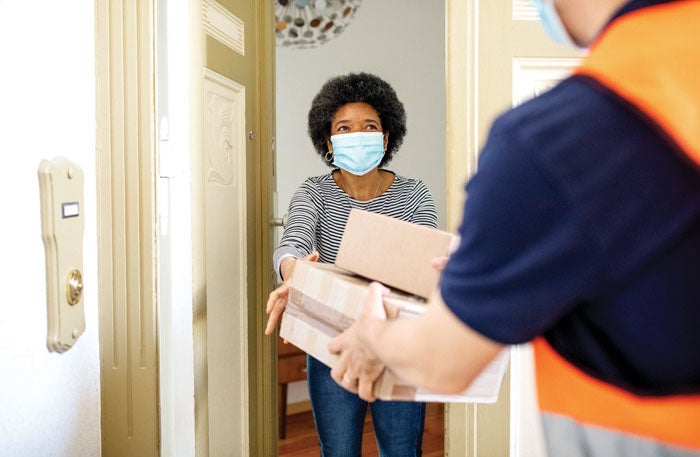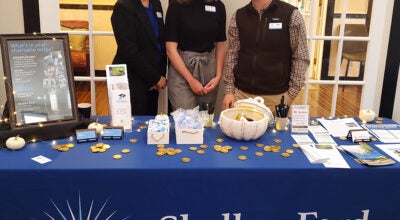6 key etiquette moves for the summer of COVID-19
Published 12:00 am Thursday, June 25, 2020
|
Getting your Trinity Audio player ready...
|
By Page Leggett
For the Clemmons Courier
Your mother may have told you to say “please” and “thank you,” keep your elbows off the table and be on time. People notice good manners, Mom always said.
But etiquette in the age of COVID-19 means a lot more than covering your mouth when you cough — although you definitely should do that. (Don’t forget, cough into the crook of your elbow instead of your hand. Coughing into your hands is a guaranteed way to spread germs.)
Today, good manners aren’t just the stuff of prissy etiquette books and the cotillion crowd. Being polite during a pandemic could actually save someone’s life. Here are a few things that convey a sense of “we’re all in this together, and I’m doing my part.”
1. Wear a cloth mask
And make sure it covers your nose and mouth,” said Dr. Alicia Brooks of Novant Health. This is less about protecting you and more about protecting others. Masking up is not a sign of weakness. It’s the easiest thing you can to do be a good citizen. The person you pass in that grocery store aisle could be immunocompromised herself or taking care of a sick parent or child. Your mask isn’t just protecting her; it’s protecting everyone she comes in contact with.
“Please don’t wear a crocheted or lace mask,” Brooks said. “Look for something solid, sturdy and made of a finely woven fabric. Your mask shouldn’t have holes in it — even the decorative kind.”
Remember: You could have COVID-19 and not know it. It’s best to behave as if you have it.
You do not need to wear gloves, which can create a false sense of security. Better to wash your hands often with soap and warm water for 20 to 30 seconds.
One more note: If you make eye contact with someone, offer a friendly greeting. It’s almost impossible for someone to detect your smile under that mask. Don’t leave others guessing.
2. Keep a safe distance
Social distancing is still strongly recommended, even though businesses are beginning to open up again. Keep at least 6 feet between you and whoever you’re interacting with if they’re outside your family unit. Handshakes and fist bumps are out. Don’t put someone in an awkward position by reaching out to touch them. Just wave or make a handshaking gesture and smile. They’ll get it.
3. Stay home if you’re sick
Emily Post, the late authority on etiquette, would surely agree. The best way to protect your community is to isolate yourself if you’re sick. People who show up for work even when coughing and sneezing? They are not heroes. They’re spreading germs and putting others at risk.
If you’ve been sick and start to feel better and are wondering if it’s safe to go out again, check with your provider, Brooks said.
4. Don’t touch!
If you’re in a waiting area at a nail or hair salon or other business, the magazines should have been removed. If they haven’t been, don’t touch them. In a grocery store, try to make your selection just by eyeballing. Keep your handling of produce, meat, etc. to a minimum.
The “don’t touch” rule goes for your face, too. And your mask, for that matter. “The main reason we see masks get contaminated is because people touch them,” Brooks said. “Try to touch the mask only when you put it on and take it off. And don’t reuse it without washing it first.”
5. Limit your trips away from home
“Even though we’re starting to open up, try to just go out just for the essentials,” Brooks said. “And try to piggyback your errands. If you need to go to the pharmacy, do it during your trip to the grocery store.
6. Be kind
Being courteous never goes out of style. Especially since we’re all giving each other a wide berth — making room on the sidewalk, for instance — it’s important to be friendly. Wave, nod, make eye contact, say “hello.”
If you see someone not wearing a mask, it’s best not to be confrontational. That person could have an underlying condition that makes wearing a mask difficult.
Being gentle and giving someone the benefit of the doubt will go a long way toward helping us get through this. “We’re here to take care of you if you get sick,” Brooks said. “But we’d rather keep you from getting sick in the first place. There’s a lot we don’t know about this virus and how it behaves in the old and young. We should do all we can to prevent its spread to vulnerable people.”




